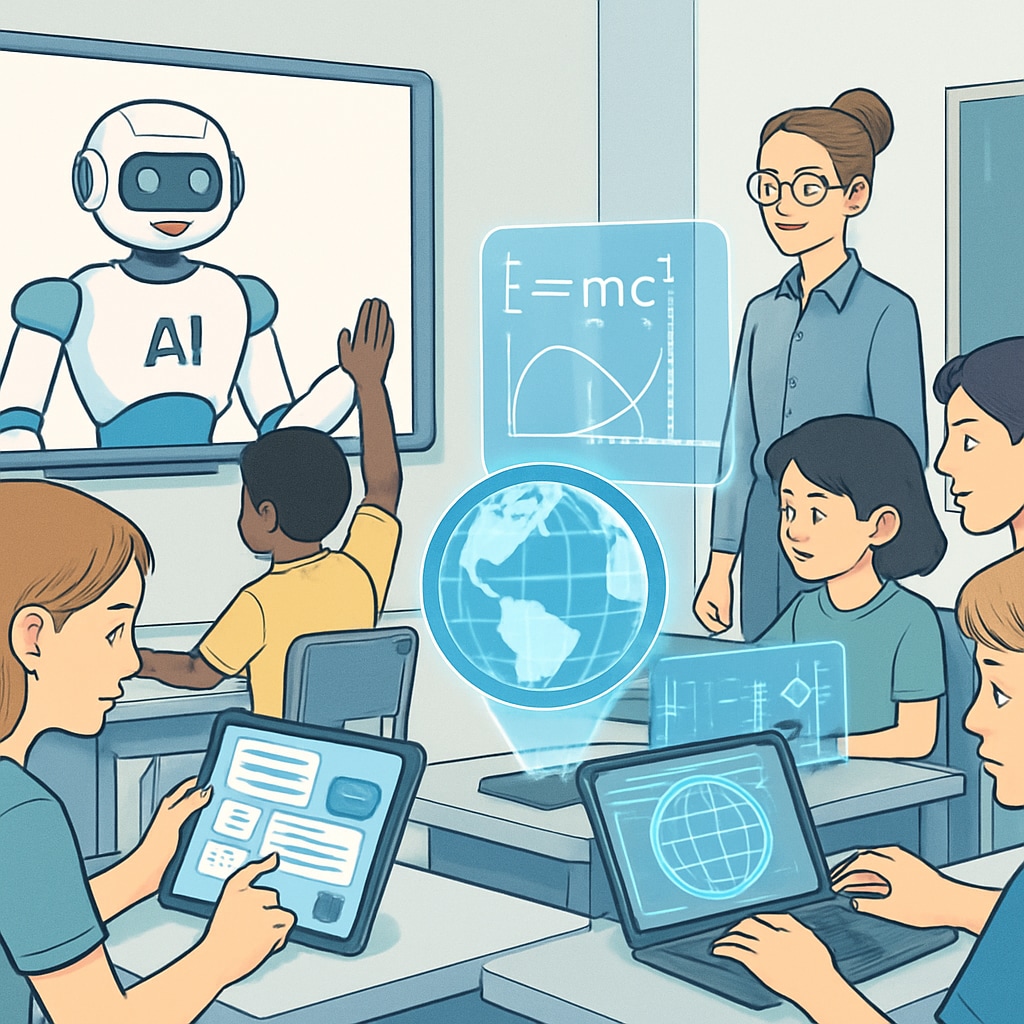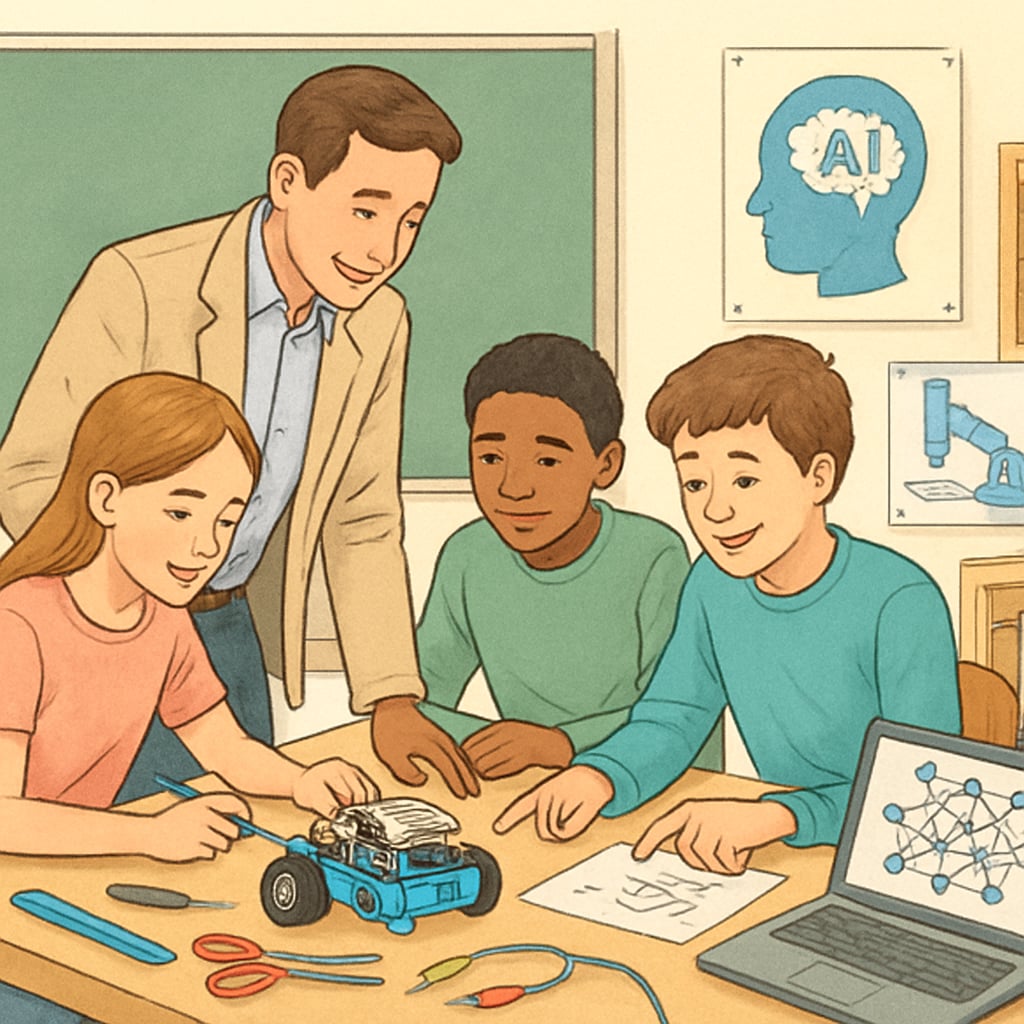Artificial intelligence (AI) is rapidly transforming industries, forcing educators and policymakers to rethink the value of higher education and the future of employment. With traditional career paths becoming less predictable, K12 education must adapt to prepare students for jobs that may not yet exist. This article explores how the educational system can be restructured to equip young learners with the skills needed to navigate an AI-driven job market.
How AI is Reshaping Employment and Education
The rise of AI technologies, from machine learning to automation, is redefining the workplace. Many routine tasks, once performed by humans, are now managed by intelligent systems. According to a report by the World Economic Forum, nearly 85 million jobs could be displaced by AI by 2025, while 97 million new roles may emerge to accommodate these technologies. This shift has profound implications for higher education, which has traditionally been the gateway to stable careers.
However, the unpredictability of future job markets raises critical questions: How can K12 education prepare students for roles that don’t yet exist? And what kinds of skills will be most valuable in an AI-dominated world?

Key Skills for an AI-Driven Future
To address these concerns, educators must focus on cultivating skills that are less likely to be automated and more aligned with human creativity and adaptability. Some of these essential skills include:
- Critical Thinking: The ability to analyze complex problems and develop innovative solutions will remain indispensable in a world increasingly reliant on AI.
- Emotional Intelligence: Human-centric skills, such as empathy and interpersonal communication, are areas where AI still falls short.
- Digital Literacy: Understanding how to interact with and leverage AI technologies will be a fundamental requirement across all industries.
- Adaptability: With rapid technological change, the ability to learn new skills and pivot between roles will be crucial.
As a result, K12 education systems must move beyond rote memorization and standardized testing to emphasize experiential learning, interdisciplinary projects, and soft-skills development.
Reimagining K12 Education for the AI Era
To prepare students for an uncertain future, K12 education must undergo significant transformation. Here are some strategies educators and institutions can adopt:
- Integrate AI into the Curriculum: Introducing students to AI concepts early on can demystify the technology and spark interest in related fields. For example, AI coding workshops can teach problem-solving while building technical skills.
- Focus on Project-Based Learning: Encouraging students to work on real-world problems fosters creativity and teamwork, skills that are highly valued in evolving job markets.
- Emphasize Lifelong Learning: Instilling a mindset of continuous education can help students adapt to changing career landscapes. Schools can partner with online learning platforms like Coursera or Khan Academy to provide additional resources.
- Develop Career Resilience Programs: Workshops on adaptability, mental health, and resilience can prepare students for the emotional challenges of career uncertainty.
Such initiatives not only prepare students for the workforce but also empower them to become proactive, lifelong learners capable of navigating an AI-driven world.

Balancing Education and Technology
While integrating AI into education offers immense potential, it also raises ethical and practical challenges. For instance:
- Equity Concerns: How can schools ensure equal access to AI resources, particularly in underserved communities?
- Data Privacy: As AI tools collect vast amounts of student data, what measures are in place to protect their privacy?
These issues underscore the importance of collaboration among educators, policymakers, and technologists to create an equitable and ethical framework for AI in education.
Conclusion: Turning Anxiety into Opportunity
The rise of artificial intelligence has sparked widespread anxiety about the value of higher education and the future of employment. However, by reimagining K12 education, society can turn these challenges into opportunities. By focusing on critical thinking, adaptability, and emotional intelligence, schools can equip students with the tools they need to thrive in an unpredictable job market. As a result, education can remain a cornerstone of personal and professional success, even in the age of AI.
Readability guidance: This article uses short paragraphs, frequent transitions, and lists to enhance readability. Technical terms are explained upon first use, and passive voice is minimized for clarity.


